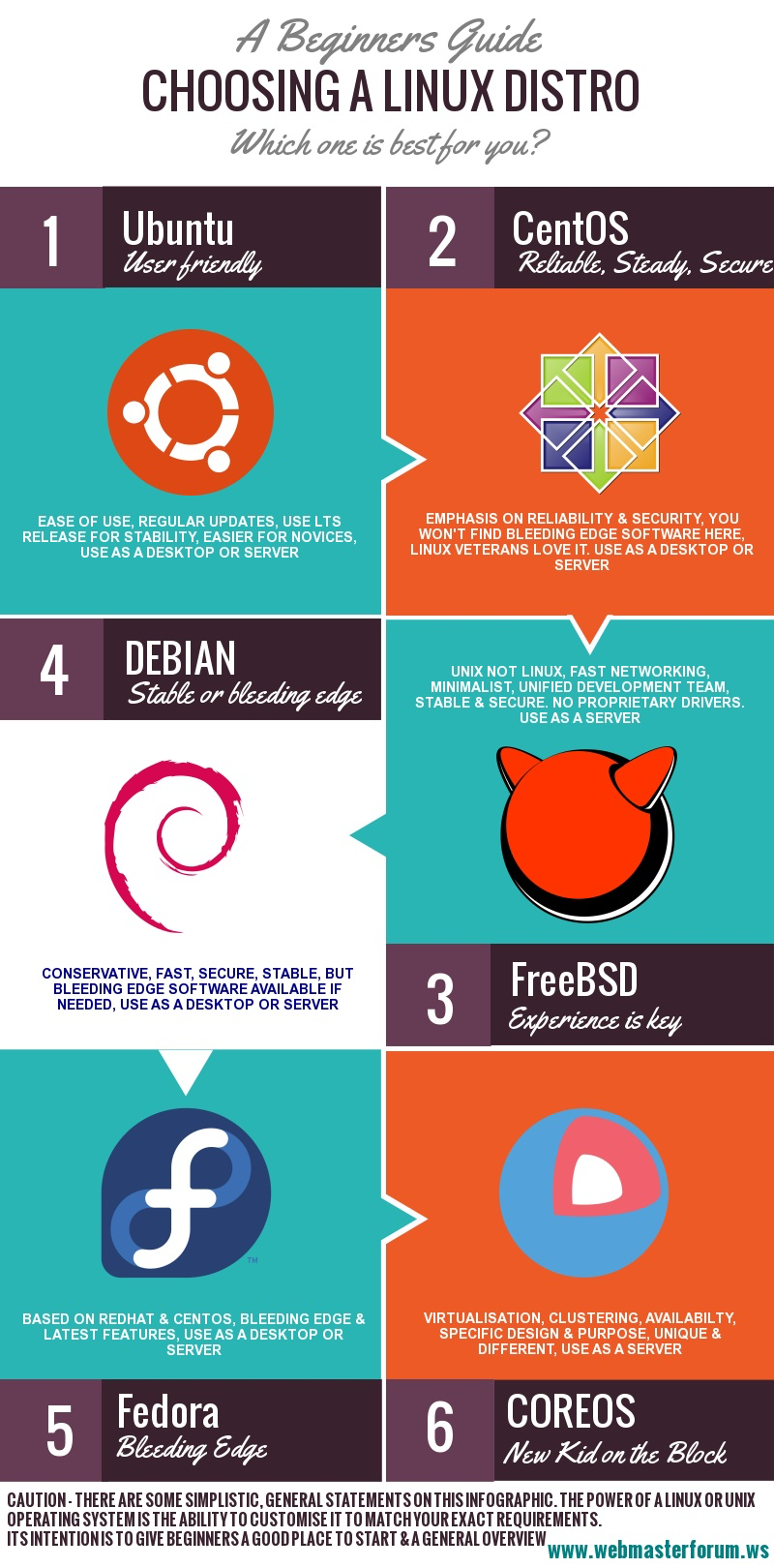Linux or Unix can be a confusing world, especially if you are new to it. What is the best Linux distro or distibution? What even is a Linux distibution? Why on earth do you need a distro and why should you care anyway? These are just some of the questions that people new to the Linux or Unix world have.
This blog post might just give you the edge as an internet marketer, content creator or blogger.
Maybe you find yourself reading this blog post by accident. You set out to create an online business, a website of some description and here you are, biting off what feels like more than you can chew.
If you are a website creator, marketer, blogger or someone who wouldn't count themselves as technical, then this post will hopefully be right up your street. This isn't a technical explaination of what is the best Linux distro or distribution.
If you are technical then treat this as a basic introduction that can act as a spring board to further learning, should you feel like you need to.
By the end of this post you should be able to understand the following:
- The basic differences between each distribution or distro
- The advantages of Linux and Unix
- How using Linux and Unix can save you time and money
- The competive edge Linux and Unix can bring to your business
What is the best Linux distro or distribution? - Where to start:

I have tried to capture the simplistic differences with this infographic. Linux and Unix is a broad deep subject. As someone who has been working with Linux for 10 years, the infographic does reasonable job of highlighting the differences. As a starting point its possibly all you need to know for now without overwhelming you.
The Linux and Unix community are a passionate and commited bunch. This means that there is always someone on hand to help you out. It also means that they like to defend anything which is seen as an attack of the distro that they favour.
My position is that I don't have an allegience to a distro. I either use the distro that is specified by a software company as the one they support, or the one that helps me get done what I need to get done, with the least amount of trouble.
Each distro has a different starting point, choosing the right one can help you achieve your goal faster.
The power of Linux and Unix is that in most cases you can customise it and get it to do whatever you need to. This customisation takes a lot of time and investment in terms of learning, but each distro has a different starting point that can help you achieve your end goal faster. The key is to pick the right one from the start. That way there is no need to do any customisation.
What is a Distro or Distribution anyway?
Distro is short for distribution and we will come on to what a distribution is in a minute.
If you imagine an Operating System as a house, it consists of two main elements. Things you can see and things you can't see.
The bits you can see are things like the front door, the windows and the brick work. The bits you can't see are the foundations and the electrical cables.
A house without a strong foundation is pretty useless. When did you last hear of someone buying a house because they liked the foundations it was laid on? People tend to buy a house on the basis of what they can see, rather than what they can't see.
When is comes to a Linux or Unix distro, the foundations are the distros kernel. All of the distros that are covered in this article use the same kernel, with the exception of FreeBSD. More on FreeBSD later.
The foundations of an OS is the Kernel. With all Linux distibutions, they are built on the same foundation.
Like house buying people pick their distro because of the windows and brickwork, not usually because of the foundations. For most people they trust that the foundations that the builder laid are good ones.
To make a Linux distribution, you take the kernal and add your own, or someone else's bits to it. You could make your very own distro. This makes Linux far more flexible than Microsoft Windows or Apple OSX.
If having that much power and control scares you a little, then you can pick a distro from any of the following companies:
- Ubuntu, Debian, Mint or Xubuntu
- CentOS, Fedora or RedHat
- FreeBSD
- Suse Linux or Open Suse Linux
- CoreOS
There are far more Distros than what are on the list. However I have gone for the most popular ones. I have also grouped them together as then tend to share lots of similarities.
BONUS CONTENT
DOWNLOAD THIS ARTICLE
Get a FREE digital download of this article
Which Distro should you start with?
Best Linux Distro or Distribution - Desktop OS

For a desktop Operating System I would go for Ubuntu. If comes with a full office suite, web browser and has support for third party add ons like printers and graphics cards.
Best Linux Distro or Distribution - Server OS

For a server I would go for CentOS, most web control panels come with an installer that works with CentOS. By running a couple of commands you can have a full webserver, with email, DNS management, mySQL, PHP and manage it all through a web browser.
Best Linux Distro or Distribution - Getting Started
If you want to build a server then I would recommend that you start with a VPS server. For as little as $5 a month, you can build yourself a test lab and try out all the different versions to see what you like best.
You can also get a $10 credit so it won't actually cost you anything. There are other ways to build a test platform, but I have found that for $5 a month, you will spend more on electricity running the lab.
CHOOSING A LINUX VPS
Get a cloud based server for as little as $5 per month.
PLUS A $10 CREDIT TO PAY FOR THE FIRST 2 MONTHS

